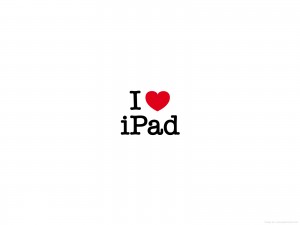iPads, iPads everywhere
Posted on December 6, 2012 in iPadAlright, alright…I guess I’ll take the free iPad you’re throwing at me. Admittedly, I was not the first person to jump on the iPad bandwagon. It seems like a lighter computer with a more annoying keyboard. I sound like an old grouchy man, but it’s true – these are my feelings.
After messing around with all of the cool apps that the iPad has to offer, I consider myself mistaken – they’re awesome. And addicting. I’ve found that after discovering and personalizing Flipboard, I get annoyed with your plain ol’ newspaper over breakfast. Why? Because all the sudden newspapers are a hassle. They unfold into huge spreads, they are not really visually appealing, and I find myself zoning out while skimming over headlines of news I don’t really want to read, now that I know what personalized news is like.
That is not to say that I’m going to start purging my shelves of physical books, only to amass a gigantic library of e-books on the iPad. Nor does it mean that I will reach for my iPad when I need to write a 5 page paper. There are some limitations to this amazing little machine, and I don’t want to get too carried away here.
In the end, receiving iPads in this class offers a unique experience for us students: we can get a real feel for all that iPads have to offer. This extends beyond the classroom and beyond class content, and that, my technologically equipped friends, is something very exciting indeed.






 need constant connection to the web. They need it to check facts, to log stories on their respective sites, and, of course, to disseminate their findings through social media. As a journalism student, understanding the process of journalism and having the ability to track it as it happens provides invaluable insight into how news is reported and why the story never seems to be complete. The iPad fosters this kind of learning through apps like Flipboard to keep on-the-go students always plugged in.
need constant connection to the web. They need it to check facts, to log stories on their respective sites, and, of course, to disseminate their findings through social media. As a journalism student, understanding the process of journalism and having the ability to track it as it happens provides invaluable insight into how news is reported and why the story never seems to be complete. The iPad fosters this kind of learning through apps like Flipboard to keep on-the-go students always plugged in.
